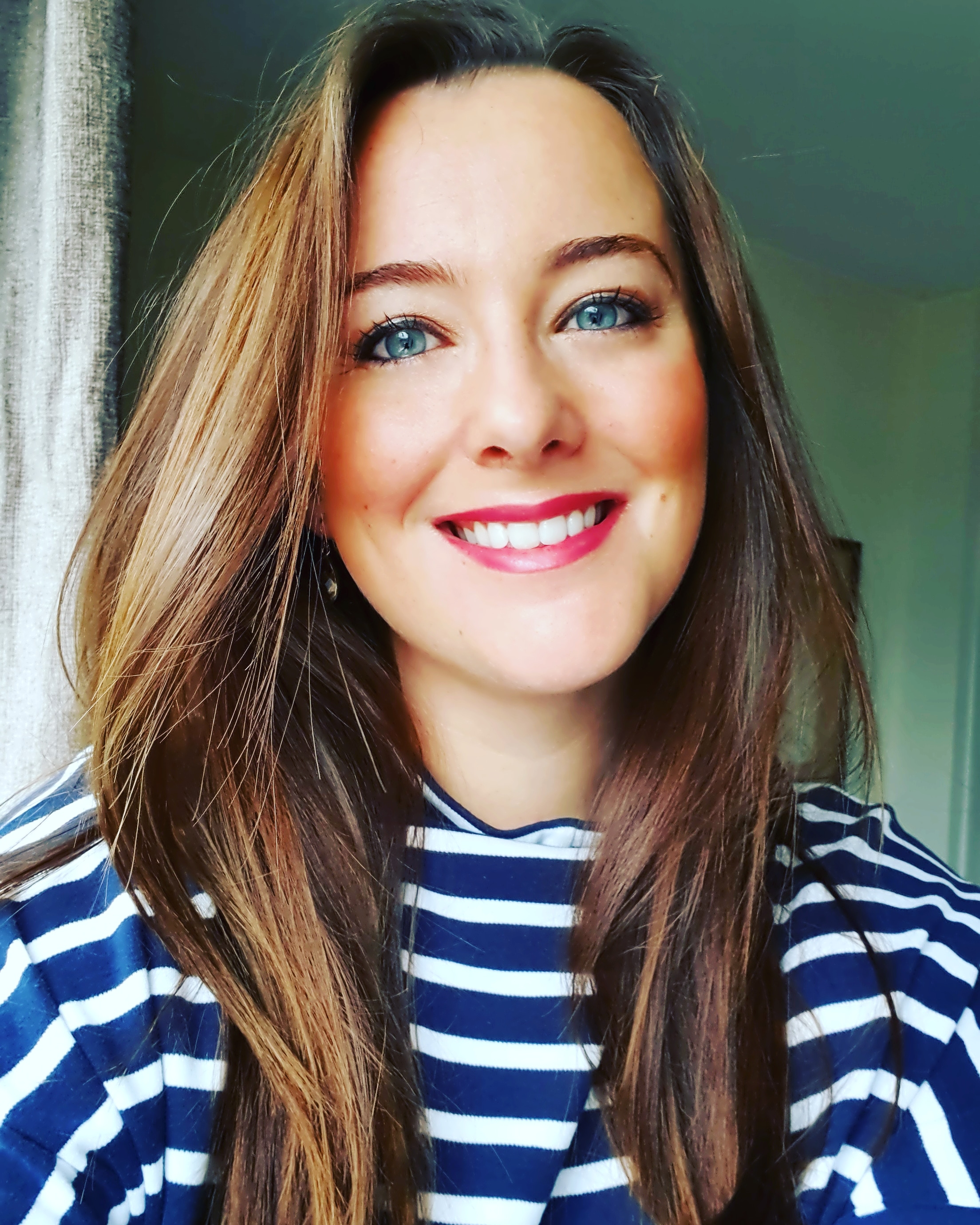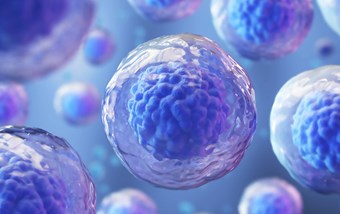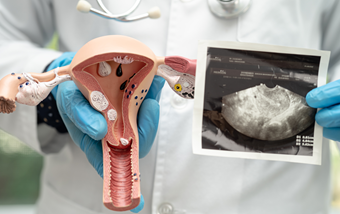When she’s not producing cookbooks, hosting “Lip Sync Battles”; raising her two adorable children or busy being the living, breathing inspiration behind John Legend’s award-winning songs; Chrissy is often present on social media where her refreshingly honest content and hysterical videos have earnt her over 25 million followers. With Chrissy, no topic is off limits and her willingness to speak publicly about her experience with IVF (via which her two children were conceived) has served as a much needed lesson for society’s outdated and presumptuous opinions about infertility and treatment.
Whether through tweets or interviews, here are the 10 things Chrissy Teigen has taught society about IVF:
1. Infertility doesn’t discriminate
“The big question was why this wasn’t working for us when I was young and he was healthy. I thought, people get pregnant by accident all the time. How does this happen?” - Chrissy talking about her inability to get pregnant in an interview with SELF Magazine, April 2016.
A common misconception (excuse the pun) is that infertility is a problem reserved for women of a certain age or for those leading unhealthy lifestyles. Whilst both age and health do play a role in fertility, infertility affects even the youngest, most healthy individuals and, sadly, no amount of kale smoothies is going to change that. Infertility is a disease, often one with no known cause and one that affects roughly one in every eight people – regardless of age, sex, race, wealth, nationality, religion, BMI, stress levels or relationship status. Infertility doesn’t discriminate and this cruel reality means that whilst some people are able to achieve pregnancy aged 45 after a lifetime scoffing greasy burgers and a single, alcohol-fuelled one time encounter with a stranger on holiday; others, like Chrissy, are unable to get pregnant despite an abundance of health, stability and years upon years of trying to make it happen.
2. IVF is hard work
“Emotionally it can be really hard. When you have these high-highs and these low-lows. You don’t want to get your hopes up, but of course, you do” – Chrissy discussing her IVF treatment on today.com, March 2016
It’s not possible to convey to those who haven’t experienced it themselves, exactly how hard it is to go through IVF. Physically, it’s a lot to take on – it’s self-administering injections (often several times a day), 48 hourly internal examinations, months of lifestyle changes, specific diets, endless procedures, supplements, operations, suppositories, pills, nasal sprays and extra hormones – all with zero guarantee of having anything to show for it at the end. And that's the easy part - emotionally, it's a whole other playing field. The stress of infertility and IVF is akin to grief and the scars can remain long after the physical side-effects have subsided. IVF is not for the faint hearted and that’s precisely why those dealing with it are referred to as “warriors”.
Attend our FREE Online IVF Event with Live Nurse Q&A and get your questions answered by a Fertility Nurse Consultant.
ADDED BONUS - everyone who attends our webinar will receive £50 off an Initial Consultation and Scan at abc ivf.

3. Ignorant comments will be addressed
As a result of infertility’s “taboo” status, IVF is widely misunderstood and ignorant comments – even from those with the very best intentions – are all too commonplace. Being in the public eye has meant that Chrissy has seen her fair share of these but, true to form and on behalf of an army of IVF followers, she calls out these type of comments in mic-drop worthy clap-backs.
In response to a tweet Chrissy shared back in January 2017 about conceiving her daughter Luna via IVF, one twitter user wrote:
“Did you give it a minute to try naturally or are you avoiding ‘the act’?”
To which Chrissy replied:
“Hi Linda, thanks for asking you complete witch, I tried for about 9 years. Anything else, let me know!”
Then in June 2017, Chrissy jokingly tweeted about paying the storage fee on her frozen embryo saying: “Damn how’s my embryo gonna be in debt before it’s even born”
And received the following response from another twitter user:
“Why would you use an embryo? Why not conceive naturally?”
To which she sarcastically replied:
“Oh wow. I didn’t know you could do that. Would have saved a ton of money.”
By the same token, Chrissy is unfazed by questions about how her children were conceived. When one user wrote to her on Instagram asking if her youngest child – Miles – was also conceived via IVF Chrissy replied with a cool:
“Yep, he was on ice a smidge longer. Science and the human body are beautiful.”
Later, amid a flurry of messages suggesting that the question was inappropriately personal, Chrissy responded by saying:
“I wasn’t offended by it – people are just curious and I think hearing success stories gives them hope. I’m all for talking about IVF.”
Back in September 2015, in an episode of the TV panel show FABLife, Chrissy tells Co-Host Tyra Banks:
“Anytime someone asks me if John and I are going to have kids, I’m just like, ‘one day, you’re going to ask that to the wrong girl who’s really struggling, and it’s going to be really hurtful to them’. Stop asking!”
Chrissy, take a bow.
4. IVF doesn’t always work
“You hear stories about IVF working the first try. But you’ll hear a lot more stories about when it takes a few times. Ours didn’t work the first time and it was devastating. You realise a lot of it is luck.” – Chrissy talking about IVF in an interview with The Cut, April 2018
By putting comments like these into the media's circulation, Chrissy is reframing the narrative around IVF which for a long time, had been based around a miraculous storyline in 'Friends' where Phoebe gets pregnant with triplets. Unfortunately, in most cases, it simply doesn't happen as spontaneously as that and success rates for IVF, even with the best possible circumstances, are actually pretty low. It’s different for each person but let’s just say that if you were given these odds on a roulette table – you wouldn’t instinctively want to launch thousands of pounds at it. More often than not, IVF isn't successful in the first try and it can take several attempts to identify the best possible combination of treatment to maximise the chances. Devastatingly, it won't necessarily work even on the 10th attempt, let alone the first.
5. The bloat is real
“I looked horrible, totally not myself. Then to not be able to say what it was – it sucked” – Chrissy talking to SELF Magazine about the side-effects of IVF, April 2016.
Weight gain, bloating, bruising and breakouts are just some of the visible symptoms of IVF and one of the most unfortunate side-effects of fertility treatment is that it can often make people look as though they are pregnant. It’s no wonder Chrissy was so fed up of being photographed during this time, not to mention the fact that she then had to spend weeks watching the media pick apart her appearance and speculate over whether her weight gain was due to pregnancy – oh the irony.
6. Fertility treatment does not make someone “more prepared” for a baby
“You know, we did IVF and it’s kind of crazy because even though you do all this planning and preparation, you take progesterone and inject your body and do all this stuff – and when I finally did get pregnant I was like, ‘Oh crap, are we ready?’” - Chrissy in an interview with The Cut, April 2018.
Even after months and years of trying and even with significant medical intervention, the realisation that it has worked can still come as a surprise to people – perhaps even more so for those who have become so accustomed to bad news and dead ends. What tends to happen with IVF patients is the focus shifts from an “I want a baby” fantasy to much smaller, more specific fantasies like “I hope my follicles grow nicely” or “fingers crossed the eggs can fertilise” or “please let there be an embryo at the end of the 5 day wait”. IVF patients are hyper aware of all the hurdles that need to be cleared and all the luck involved in order to achieve a healthy pregnancy and - far from being more prepared for motherhood - pregnancies as a result of IVF treatment are often just as surprising and terrifying as the ones that happen completely unintentionally.
7. Jealousy affects the best of us
“It’s easy to grow resentful of how easy it is for some people, when you’re literally mixing your own powders and chemicals to inject into your belly and shoving progesterone up there. When you go through IVF, it does feel like ‘Oh it’s not fair I have to do all this’. Still, it’s a complete miracle when it works.” - Chrissy in her interview with The Cut, April 2018.
Jealousy, as uncomfortable as it feels, is part of human nature and it’s an emotion that exists alongside other emotions like grief, anger and longing. IVF is a gruelling process, full of highs and lows, with ever increasing stakes and unavoidable mood swings – anyone dealing with it can be forgiven for wanting to throw themselves into a crying heap on the floor at the news of someone else’s 7th accidental pregnancy. There’s no antidote to treat jealousy but, for some reason, it’s a strange comfort just knowing that people like Chrissy feel it too – and aren’t afraid to admit it.
8. IVF failure is nobody’s fault
“The first round I did IVF, when it didn’t work, I remember thinking, ‘Oh I was on my feet too much and that’s why’. You just look for anything to blame, especially yourself. I think hearing stories is just really important. You realise there’s no right way to do it, or right way to react. I don’t know. There’s no right way to do IVF. You just have to keep hoping that it will happen.” – Chrissy in her interview with The Cut, April 2018.
Whether it’s subliminal messages from the media and society, or whether it’s just a default response; women are especially prone to blaming themselves for both infertility and the outcome of fertility treatment. In appointments following a failed round of IVF, one of the most common questions from women is: “was there anything I could’ve done?” and the answer, always, is a resounding no. The truth is, as advanced as IVF is, it isn’t an exact science. If bed-rest or acupuncture or diet or anything else had any definitive proof of resulting in IVF success – it would be part of the recommended protocol. As it stands, IVF – beyond the transfer – is largely about luck. For every success story of a woman who spent her entire IVF cycle lying horizontally and eating nothing but pineapple core and bone broth; there’s a story of a woman who hopped on a plane for a business trip, ran a half marathon and ate an entire chocolate gateaux before discovering her positive result. What works for one woman, won’t necessarily work for another and, as hard as it is, the outcome of IVF following an embryo transfer is entirely in the hands of nature and completely beyond anyone’s influence. Science can only get people so far, unfortunately.
9. IVF mums aren’t immune to postnatal depression
“I had everything I needed to be happy. And yet, for much of the last year, I felt unhappy. What basically everyone around me – but me – knew up until December was this: I have postpartum depression.” – Chrissy in a personal essay for Glamour, March 2017.
In a raw and engaging piece of writing, Chrissy opens up about her experience with postpartum (commonly referred to as postnatal) depression following the birth of her daughter Luna. She talks in detail about how it affected her health, her job and even her relationship with John and, in being so open, Chrissy reminded the media that postnatal depression can affect anyone – even those who, like her, worked incredibly hard to have a baby. Receiving fertility treatment doesn’t make someone immune from postnatal depression and, much like so many other delicate variables surrounding infertility, postnatal depression is both common and unpredictable.
Postnatal (or postpartum) depression is a common medical condition that affects roughly one in nine women. Click here to read more about the diagnosis and treatment on the NHS website.
10. Teamwork makes the dreamwork
“I have an incredible husband – John and I have been together for over 10 years. He has seen my successes and failures; I’ve seen his. He’s seen me at my worst.” – Chrissy in her essay for Glamour, March 2017.
“You want to feel like everything’s working properly and want everything to be perfect, but sometimes it’s not. It’s a big challenge for a couple and going through that together strengthens your bond because if you make it through, you know you can make it through anything.” – John Legend speaking about parenthood and trying to conceive with his wife Chrissy Teigen to Cosmopolitan, August 2017.
Infertility and subsequent treatment is a series of complicated challenges and, as the saying goes, it takes a village. Having a support network, in the form of a partner, a family member, a friend or a professional; can make some of those challenges that bit more manageable. Regardless of anyone’s indisputable independence, it’s also OK to need someone. Someone who can listen, offer a shoulder to cry on, prepare injections, attend appointments and rush over with a freshly baked cake and a box of tissues at the drop of a hat. There’s a reason why people who go through IVF, as Chrissy and John have, tell others that it strengthened their bond and brought them closer to each other – infertility is one of the most testing challenges in anyone’s lifetime and it takes a huge amount of commitment, strength and love to battle through.




